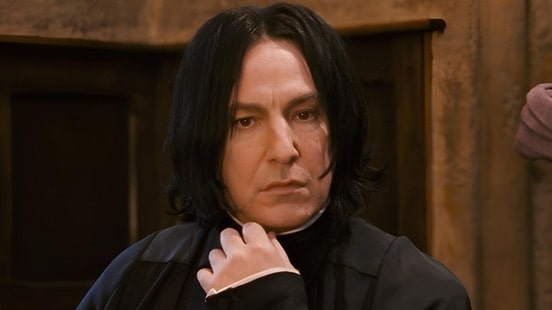The “Harry Potter” series, penned by J.K. Rowling, is replete with intricate characters and unexpected plot twists. Among the most shocking moments is the death of Albus Dumbledore at the hands of Severus Snape in “Harry Potter and the Half-Blood Prince.” This act, initially perceived as a profound betrayal, is, upon closer examination, a complex interplay of loyalty, strategy, and sacrifice.
Dumbledore’s Imminent Demise
Albus Dumbledore, the venerable headmaster of Hogwarts, was not merely a passive victim in his death. His encounter with Marvolo Gaunt’s ring—a Horcrux created by Voldemort—left him cursed with a fatal malady. Despite Severus Snape’s intervention to contain the curse, Dumbledore’s lifespan was limited to approximately a year. Aware of his impending death, Dumbledore devised a plan to ensure his demise served a greater purpose.
The Unbreakable Vow and Draco Malfoy’s Predicament
Voldemort assigned Draco Malfoy the daunting task of assassinating Dumbledore, a mission designed to punish Draco’s family and test his loyalty. Recognizing Draco’s moral struggle and the potential consequences of failure, Dumbledore sought to protect the young wizard from the soul-corrupting act of murder. Simultaneously, Narcissa Malfoy, Draco’s mother, implored Snape to safeguard her son, leading to Snape’s commitment through the Unbreakable Vow—a magical contract that, if broken, results in death.
Snape’s Dual Allegiance

Severus Snape’s role as a double agent is pivotal in understanding his actions. While outwardly aligned with Voldemort and the Death Eaters, Snape’s true loyalty lay with Dumbledore and the Order of the Phoenix. By agreeing to kill Dumbledore, Snape aimed to solidify his position within Voldemort’s inner circle, thereby continuing his espionage and ultimately aiding in the Dark Lord’s downfall.
A Mercy Killing
Dumbledore’s request for Snape to end his life was also an act of mercy. The curse inflicted by the Horcrux promised a slow and agonizing death. By allowing Snape to perform the Killing Curse, Dumbledore ensured a swift and painless end, sparing himself unnecessary suffering.
Strategic Implications
Beyond personal considerations, Dumbledore’s orchestrated death had significant strategic benefits:
- Protecting Draco Malfoy: By having Snape execute the act, Draco was spared from committing murder, preserving his moral integrity.
- Strengthening Snape’s Cover: Snape’s act reinforced his perceived loyalty to Voldemort, allowing him to continue his role as a double agent.
- Control Over the Elder Wand: Dumbledore’s death at Snape’s hands influenced the succession of the Elder Wand’s allegiance, a crucial element in the series’ climax.
Conclusion
Severus Snape killed Dumbledore as part of a prearranged plan between them. Dumbledore, already dying due to a cursed ring, asked Snape to kill him to spare Draco Malfoy from carrying out the task and to prevent Voldemort from punishing Draco and his family. This also helped solidify Snape’s position as a trusted Death Eater in Voldemort’s eyes, allowing him to continue his role as a double agent. Dumbledore believed Snape’s actions would ultimately help protect Harry Potter and defeat Voldemort. Snape’s killing of Dumbledore was an act of loyalty and sacrifice.



